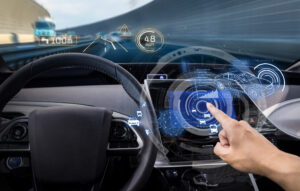
AAA study finds ADAS systems can cause drivers to lose focus
By onMarket Trends | Technology
Using advanced driver assistance systems (ADAS) over time can compromise the attention spans of those piloting the vehicles, newly-released research shows.
A study by the AAA Foundation found that behind-the-wheel focus dropped among drivers who spent weeks using and becoming comfortable with ADAS technologies.
David Yang, AAA Foundation’s president and executive director, called the findings a “cautiously positive sign for the future of vehicle automation.”
“As drivers become more comfortable with the technology, they will be more likely to use it, which could lead to safer and more efficient transportation,” Yang said. “But they must use it properly and understand the system’s limitations.”
The study involved assessing 30 drivers as they navigated vehicles equipped with Adaptive Cruise Control and Lane Keeping Assistance features for six to eight weeks. Their behavior before, during, and after using the ADAS-equipped vehicles was analyzed, the foundation said.
The study found that drivers:
-
- Became more comfortable with ADAS over time and are most likely to use it in favorable weather and traffic conditions;
- Reported lower stress levels and greater driving enjoyment when using driver assistance features; and
- Received an increasing number of warnings to pay attention as the study carried on, suggesting they became more comfortable with non-driving activities after gaining ADAS familiarity.
“Intriguingly, the research found that drivers initially paid more attention to the driving task when using ADAS than when driving manually,” the AAA Foundation said. “However, after a few weeks of experience, drivers began to relax and multitask more often while the vehicle was in partial control.
“These findings suggest drivers can learn to trust and rely on ADAS over time. However, drivers must be aware of the technology’s limitations and prepared to take over in an emergency.”
A reliance on ADAS also underscores the importance of ensuring driver assist features are returned to their original condition following a collision. This requires following OEM procedures and using the right tools to ensure the systems work as intended.
This isn’t the first time studies have highlighted overreliance on vehicle technologies.
In August, a Quotezone survey from the United Kingdom found that nearly one-third of drivers whose vehicles are equipped with ADAS believe new technologies are worsening their driving.
An Insurance Institute for Highway Safety (IIHS) report from 2018 determined that drivers tend to change their behavior when using automated parking technology.
“Drivers adapt their glance behavior when using automation, which may detract attention from their surroundings,” IIHS said. “Glance behavior during parallel parking maneuvers performed with and without automated steering was compared. Drivers directed a smaller proportion of their glances toward the parking space and spent less time looking at it when using automation than when not using automation.”
A separate IIHS study from last October found that drivers who use partial automation frequently treat their vehicles as fully self-driving, confident that they can perform non-driving-related activities, like eating or texting, while behind the wheel.
The AAA Foundation said the findings of its latest study found that ADAS-equipped vehicles have the potential to be safe.
The foundation cited a previously released study it sponsored that found ADAS technologies currently available to U.S. consumers are anticipated to prevent 37 million crashes, 14 million injuries, and nearly 250,000 deaths. That adds up to 16% of crashes and injuries and 22% of deaths that would otherwise occur on U.S. roads without the technologies, according to the study results.
“The potential lifesaving benefits of vehicle safety technologies are maximized only when drivers keep them on and use them correctly,” said Jake Nelson, AAA’s director of traffic safety advocacy. “These study results help illuminate the important and sometimes irrational ways we as drivers interact with technology.”
Images
Featured illustration courtesy of metamorworks/iStock
